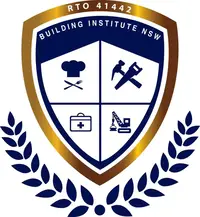
This role has a low level of AI exposure. Core skills such as adaptability, social intelligence, and complex physical tasks remain beyond the capabilities of current AI.
Explore all careersAn Ironworker fabricates and installs steel structures, ensuring strength, safety, and quality in construction and infrastructure projects.
Get qualified to work as an Ironworker with a course recognised across Australia. Speak to a training provider to learn more.








Browse occupations related to Ironworker



If you're looking to start a rewarding career as an Ironworker in the Central Coast, you're in the right place! With a strong focus on practical skills and hands-on training, the Ironworker courses in Central Coast are designed to equip you with everything you need to succeed in the industry. Currently, the Certificate III in Engineering - Fabrication Trade is being offered by the reputable McGill Institute Australia, which is a recognised provider in the region.
The Ironworker profession encompasses a variety of roles, all integral to the construction and manufacturing sectors. With the skills gained from Ironworker courses, you may also consider pursuing related job roles such as an Apprentice Engineer or an Engineering Tradesperson. Our region has a strong demand for skilled workers, and completing these courses can make you a competitive candidate in the job market.
In addition to becoming an Ironworker, exploring other related fields can broaden your career scope. Consider training to become a Boilermaker or even a Welder. Courses in these areas complement the skills learned in Ironworker courses in Central Coast, making it easier for you to transition between trades and increase your employability.
Central Coast is not just known for its beautiful beaches; it also boasts a thriving construction and trades scene. By enrolling in the Ironworker courses available, such as the Certificate III in Engineering - Fabrication Trade, you'll gain access to valuable industry contacts and training that the local community has to offer. Don't miss out on the opportunity to become a skilled Metal Worker or even a Sheet Metal Worker—opportunities are waiting for you!
Embarking on your journey in the ironworking field is both exciting and rewarding. By taking Ironworker courses in Central Coast, you're not only learning essential skills but also opening doors to various career paths in trades such as Welding and Metalworking. Take the first step towards a fulfilling career—explore the available courses today and see how you can shape your future!